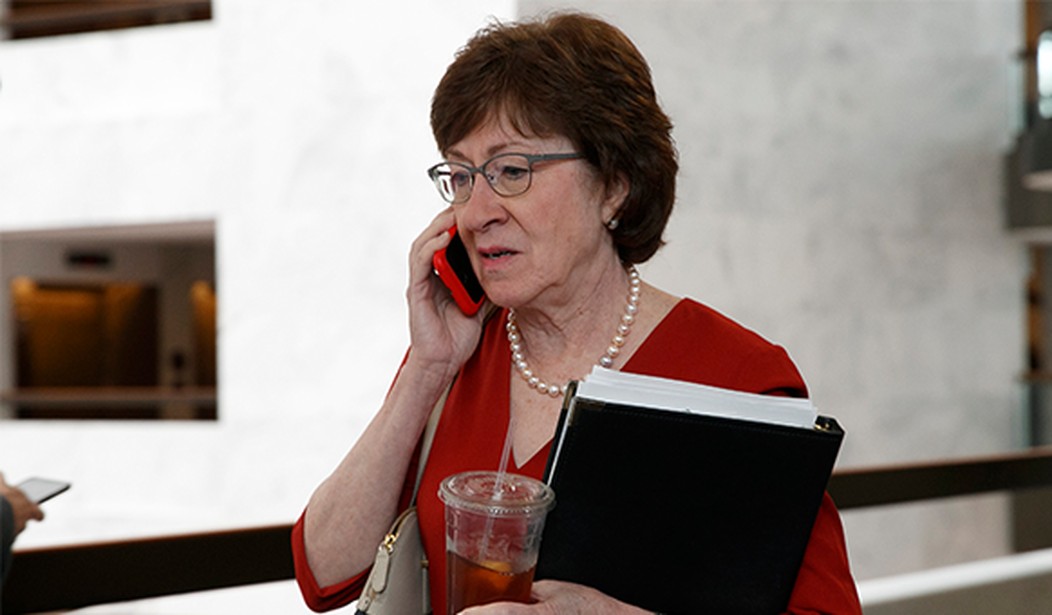Another interestingly timed bit of January 6 news to coincide with tonight’s primetime hearing. The Manchins and Collinses in the Senate have been huddling for months on how to reform the Electoral Count Act, the nineteenth-century law that governs how Congress should proceed when certifying the votes of the electoral college. Some reforms are no-brainers, like making it very clear in the statute that the vice president doesn’t have the power to singlehandedly overturn a national election. Other reforms are trickier, like fixing the procedures for objecting to a state’s electoral votes. Currently it takes only one member of the House and Senate to force a floor debate on whether a state’s votes should be accepted. That’s too low in an age when grandstanders like Ted Cruz and Josh Hawley are willing to do everything possible to pander to their base, up to and including forcing a constitutional crisis, because they think it might give them a leg up in the next presidential primary.
The most difficult questions in ECA reform, though, have to do not with misbehavior by members of Congress on January 6 but misbehavior by state officials in certifying their state’s votes. What does Congress do if the Democratic nominee wins the popular vote in Pennsylvania in 2024 but Gov. Doug Mastriano contrives some excuse to ignore that result and sends a slate of Republican electors to cast their votes for Trump instead? Can Congress ignore Mastriano’s electors? Can they force the courts to intervene? What happens if the state legislature joins the effort to ignore the popular vote?
The centrists in the Senate have been hashing it out and they’re close to a deal, Susan Collins told reporters yesterday. All sides reportedly agree that the VP should have only a ceremonial role on January 6 and that an objection to a state’s electoral votes shouldn’t be heard unless 20 percent of the House and Senate join the objection. Which is too low, I think: A Republican-run House will easily clear that threshold and there may well be 20 Republican senators beholden to Trump in the next Congress who are willing to register any objection he demands. At least 12 Republicans were preparing to object in 2021 before the insurrection forced a change of plans. If J.D. Vance and Blake Masters land in the Senate in 2023, that number will creep higher.
Requiring one-third of each chamber to object to force a floor debate would have been better. Maybe the negotiators will wise up to that as the bill is finalized.
The remaining sticking point is what to do about the states, says Collins.
The main issue the Senate group hasn’t resolved, two sources familiar with its work said, is how to address the “safe harbor” deadline — the date by which states must certify their presidential election results to ensure they are counted without interference from Congress. But what if a state misses the deadline? What if it sends an “alternate slate” of electors for a losing candidate?…
The first [option] is to replace the “safe harbor” concept with a clear federal duty for the relevant state official to send timely certification to Congress under the 12th Amendment.
The second is to replace safe harbor provisions with new laws making it clear that Congress can identify the state official lawfully tasked with establishing a state’s electors.
The third is to preserve the safe harbor concept and tell states that to qualify for the presumption that their submitted electors are conclusive, they must notify Congress before Election Day which official is responsible under state law for sending electors.
A writer at Cato suggests another possibility. There’s no good reason that Congress should be forced to decide between two competing slates of electors from a single state in this day and age. ECA reform could make the “safe harbor” contingent upon a state resolving the dispute itself prior to January 6, with litigation if necessary, and submitting only the “legitimate” slate of electors to Congress. That would also prevent the scenario imagined by some in which a single rogue governor may be able to tilt an election. Currently the ECA says that if Congress receives two slates of electors from a state and the House and Senate are divided on which to accept, the governor’s slate of electors wins. All it would take to ensure Pennsylvania’s votes go to Trump next time, in other words, is Doug Mastriano deciding that they should and a cowardly Republican House agreeing with him because they’re too afraid of a backlash from the base if they don’t.
If instead Congress forces a state to submit only one electoral slate, that scenario is avoided.
As I said up top, though, the timing is interesting. On the very day the January 6 committee is set to hold its first primetime hearing, the Senate finally has news to report about an ECA deal coming together. Is that a pure coincidence or were Collins and the rest striving to make a deal in time for the hearings, either to signal their agreement with what the committee’s doing or to piggyback on the media attention? There may be a deeper purpose, to get the Senate’s ideas about ECA reform on the record and in front of the House before the January 6 committee issues its own recommendations and those become gospel. Maybe the suggestions from Collins’s group will influence the committee’s thinking.
In lieu of an exit question, scroll through Third Way’s slideshow on “The Plot to Steal the Presidency.” It’s a five-part process and every part is important.







Join the conversation as a VIP Member